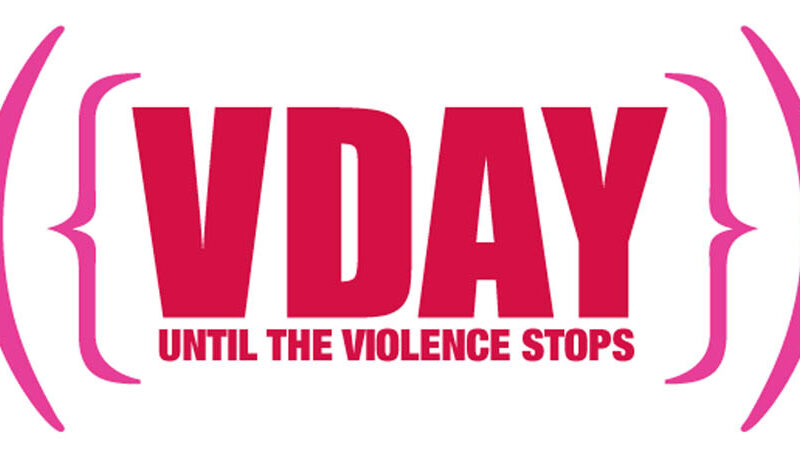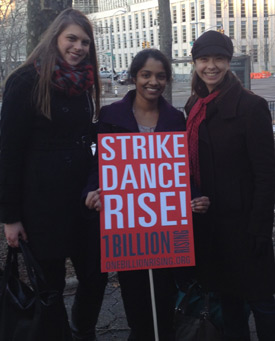Think Globally, Act Locally, and Rise to End Violence Against Women and Girls


Yesterday, the ACLU joined one billion people from around the world in taking a stand against violence through our participation in V-Day, a global activist movement to end violence against women and girls.
In the United States, gender-based violence is often viewed as an issue of concern for a small segment of the population, or as something that only affects poor women or women in conflict zones in far-flung corners of the globe.
While it is important to recognize that poverty, war and other factors like race and caste-based discrimination compound and contribute to gender-based violence, it exists in many forms and ultimately stems from discrimination and inequality. This is, at its root, an equality issue, and one that affects people from diverse socioeconomic and ethnic backgrounds.

ACLU staffers Selene Kay, Emily Carter and Ramya Sekaran at the One Billion Rising: Rising on the Brooklyn Bridge event in NYC. On Feb. 14, women from around the globe pledged to rise up against the atrocities committed against women worldwide.
The late UN diplomat and humanitarian Sergio Vieira de Mello put it best in April 2003:“There must be no impunity for gender-based violence. Let me be clear: What we are talking about is not a side issue. It is not a special interest group of concern to only a few….Violence against women concerns not only women, but above all the rest of us.”
This year, we are joining the global campaign One Billion Rising by joining the “Rising” on the Brooklyn Bridge to show our solidarity across borders and to demonstrate that we refuse to accept violence against women and girls as a given. Above all, we are rising to send a message to our lawmakers that more must be done to end violence against women and girls in our homes, schools, and communities.
Women in the United States face alarmingly high levels of gender-based harassment and violence. Nearly one in five women is raped at some point in their lives, and more than one in three women has experienced violence perpetrated by an intimate partner. Discriminatory treatment by law enforcement exacerbates the trauma these women experience and halts the process of justice.
The consequences of this crisis are far reaching. Violence against women is a serious criminal, public health, economic and social issue that has detrimental effects on survivors’ physical and mental health and productivity at work and school. Violence against women is also a major contributing factor to poverty and homelessness and should be an issue of concern for all Americans regardless of gender.
We as citizens must do the work of changing hearts and minds. The One Billion Rising campaign is an effort to do just that, but institutional barriers impede progress, and the government must play a key role in proactively preventing and responding to this epidemic.
The ACLU has set forth specific recommendations for the President’s second term with respect to women’s rights. These include enforcement of fair housing for domestic violence victims, providing guidance on gender-biased policing of domestic and sexual violence, drawing on the Department of Justice’s recent investigations into the issue, implementing the Inter-American Commission on Human Rights’ domestic violence recommendations and facilitating disability benefits for veterans based on military sexual assault.
On a local level, the New York Civil Liberties Union is urging Assembly Speaker Sheldon Silver, and State Senate leaders Jeffrey Klein and Dean Skelos to adopt and implement the Women’s Equality Agenda, groundbreaking proposed legislation that would break down barriers to New York women’s full and equal participation in society. NYCLU is asking New Yorkers to sign a petition in support of this agenda.
Activists are doing their part in the fight to end violence against women. And today, we are asking our lawmakers once again: what will you do to ensure that every American can live free from discrimination and violence? The time to rise and take action is now.
Learn more about domestic violence: Sign up for breaking news alerts, follow us on Twitter, and like us on Facebook.


